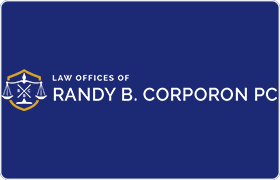Deer Trail Felony Lawyer, Colorado
Sponsored Law Firm
-
 x
x

Click For More Info:
-
Law Offices of Randy B. Corporon PC
2821 S. Parker Road Suite 555 Aurora, CO 80014» view mapCriminal Clients First, Excellence Always!
You owe it to yourself and your loved ones to be represented by an experienced, high-quality attorney, with a track record of proven success.
800-976-8531
Not enough matches for Deer Trail Felony lawyer.
Below are all Deer Trail lawyers.
Stephanie Ritland
Dispute Resolution, Disability, Divorce, Family Law
Status: In Good Standing Licensed: 20 Years
Stephanie A Ritland
Dispute Resolution, Disability, Divorce, Family Law
Status: In Good Standing Licensed: 20 Years
Stephen W. Monks
Real Estate, Estate, Criminal, Bankruptcy & Debt
Status: In Good Standing Licensed: 24 Years
 Randy Corporon Aurora, CO
Randy Corporon Aurora, CO
